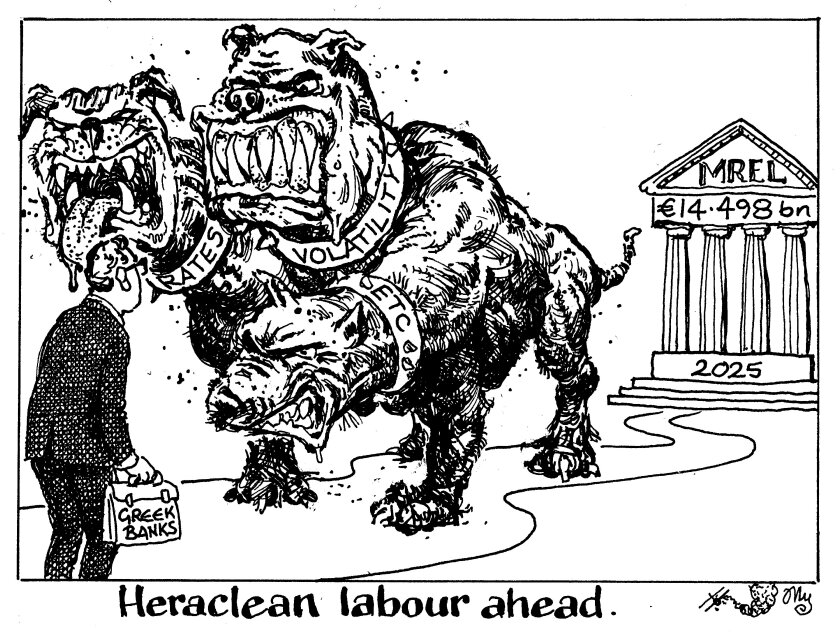The introduction of the minimum requirements for own funds and eligible liabilities (MREL) in 2014 marked a major shift in European bank funding structures.
The new standards meant that banks needed to issue vast amounts of debt to protect against losses during a crisis, which required significant changes to the risk profile of senior unsecured bonds.
Fast forward eight years and it almost seems as though European lenders have made light work of their MREL demands, even if it has taken them some time.
Figures from the Single Resolution Board this week showed that euro area banks are now just €35bn shy of their final requirements, and some countries have already crossed the finish line.
But firms have been fortunate that MREL has been rolled out during a period of unprecedented support for financial markets, with quantitative easing fuelling a hunt for yield that has kept prices low for even the riskiest assets.
It seems unlikely the next few years will follow the same pattern, as central banks prepare to hike rates and wind back QE to settle surging inflation.
Already this year, investors are placing smaller orders and charging double digit premiums for deals that would have been a cinch to price through fair value a few years ago.
The timing could not be worse for banks in Greece — the only eurozone country that still has a major MREL shortfall.
The SRB’s figures show that Greek lenders still need to raise €14.5bn of eligible resources for their extended deadline in 2025, equivalent to roughly 10% of their risk-weighted assets.
Though the banks have all already made successful debuts in the MREL senior market, there is no certainty over whether there will still be plenty of demand left for repeat issuances.
The end of the easy money era could easily begin to cast a shadow over the market for MREL, which needs to work for all European banks, not just the biggest and best-established names.
If the Greeks previously faced a big challenge with their requirements, the task is now at a clear risk of becoming Herculean.

